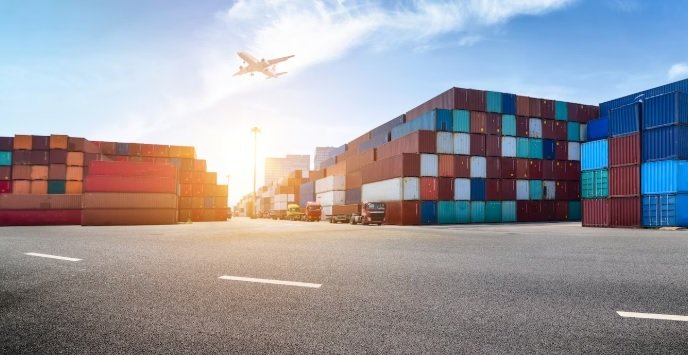Premium Logistics Services: Streamlining Your Supply Chain Efficiently

“Optimize your business with our Premium Logistics Services. Streamlining your supply chain efficiently for maximum results!”
Logistics services encompass a broad range of activities aimed at managing the transportation, storage and delivery of goods and services. At its core, logistics ensures that the right product reaches the right place at the right time, in the desired condition and at an optimal cost. This industry serves as the bridge between producers and consumers, orchestrating complex supply chain operations that include transportation, warehousing, inventory management, order fulfillment and freight forwarding.
Modern logistics services rely heavily on technology, leveraging tools like real-time tracking, automated warehousing, and advanced analytics. These innovations allow logistics companies to optimize operations, reduce costs and improve customer satisfaction. The integration of technology has also made it easier for businesses to manage their supply chains, ensuring greater transparency and accountability.
Components of Logistics Services
- Transportation Management
Transportation forms the backbone of logistics. It involves selecting the appropriate mode of transport—road, rail, air or sea—based on factors like cost, speed and distance. Efficient transportation management minimizes delays, reduces fuel consumption, and ensures timely delivery. Companies often rely on advanced routing software to optimize delivery schedules and improve efficiency. - Warehousing and Storage
Warehousing is another critical aspect of logistics services. Storage facilities serve as hubs where goods are held before being dispatched to their final destinations. Modern warehouses are equipped with automated systems for inventory management, reducing human error and speeding up operations. Strategic warehouse placement near major markets or transport hubs also plays a key role in cutting down delivery times. - Inventory Management
Proper inventory management ensures businesses maintain optimal stock levels, avoiding overstocking or stockouts. Logistics providers use sophisticated software to monitor inventory in real time, predicting demand and aligning supply accordingly. This capability is essential for industries like retail and manufacturing, where timely availability of products is crucial. - Freight Forwarding
Freight forwarding involves coordinating the shipment of goods across international borders. This component requires a deep understanding of customs regulations, import/export laws and international trade agreements. Freight forwarders act as intermediaries, ensuring smooth transitions between various stages of the shipping process. - Order Fulfillment and Last-Mile Delivery
The final step in the logistics chain, last-mile delivery, is often the most challenging. It involves delivering goods from distribution centers to the end customer. With the rise of e-commerce, customer expectations for fast and accurate deliveries have intensified, pushing logistics providers to adopt innovative solutions like drone deliveries and autonomous vehicles.
The Importance of Logistics Services
Logistics services are vital for businesses of all sizes, enabling them to operate efficiently in an increasingly competitive marketplace. By optimizing supply chains, logistics providers help companies reduce operational costs, improve product availability and enhance customer satisfaction. In sectors like healthcare, where timely delivery of medical supplies can save lives, the role of logistics is particularly critical.
On a larger scale, logistics services underpin global trade by facilitating the movement of goods across borders. They connect producers in one part of the world with consumers in another, creating opportunities for economic growth and fostering international collaboration. For developing countries, efficient logistics networks can open doors to global markets, boosting exports and attracting foreign investment.
Challenges Facing the Logistics Industry
Despite its importance, the logistics industry faces numerous challenges. One of the most pressing issues is the need for sustainability. As concerns about climate change grow, logistics companies are under pressure to reduce their carbon footprint. This has led to the adoption of greener technologies, such as electric vehicles and alternative fuels, as well as efforts to optimize delivery routes and minimize waste.
Another challenge is the volatility of global trade. Events like pandemics, geopolitical conflicts and natural disasters can disrupt supply chains, causing delays and increasing costs. To mitigate these risks, logistics providers must invest in resilient and adaptable systems.
Technological advancements, while beneficial, also bring challenges. The integration of new technologies requires significant investment and skilled personnel. Additionally, as logistics operations become more digitalized, the risk of cyberattacks increases, necessitating robust cybersecurity measures.
Conclusion
Logistics services are the unsung heroes of modern commerce, ensuring the smooth flow of goods and services across the globe. They play a crucial role in connecting businesses to customers, supporting economic growth and enabling global trade. Through advancements in technology and strategic management, the logistics industry has evolved to meet the demands of a rapidly changing world.
However, the path ahead is not without challenges. Sustainability, global uncertainties, and technological complexities require logistics providers to innovate continuously and adapt to new realities. As the world becomes more interconnected, the importance of efficient and resilient logistics services will only grow. By addressing these challenges head-on, the industry can continue to serve as the backbone of global trade, driving progress and prosperity for generations to come.



